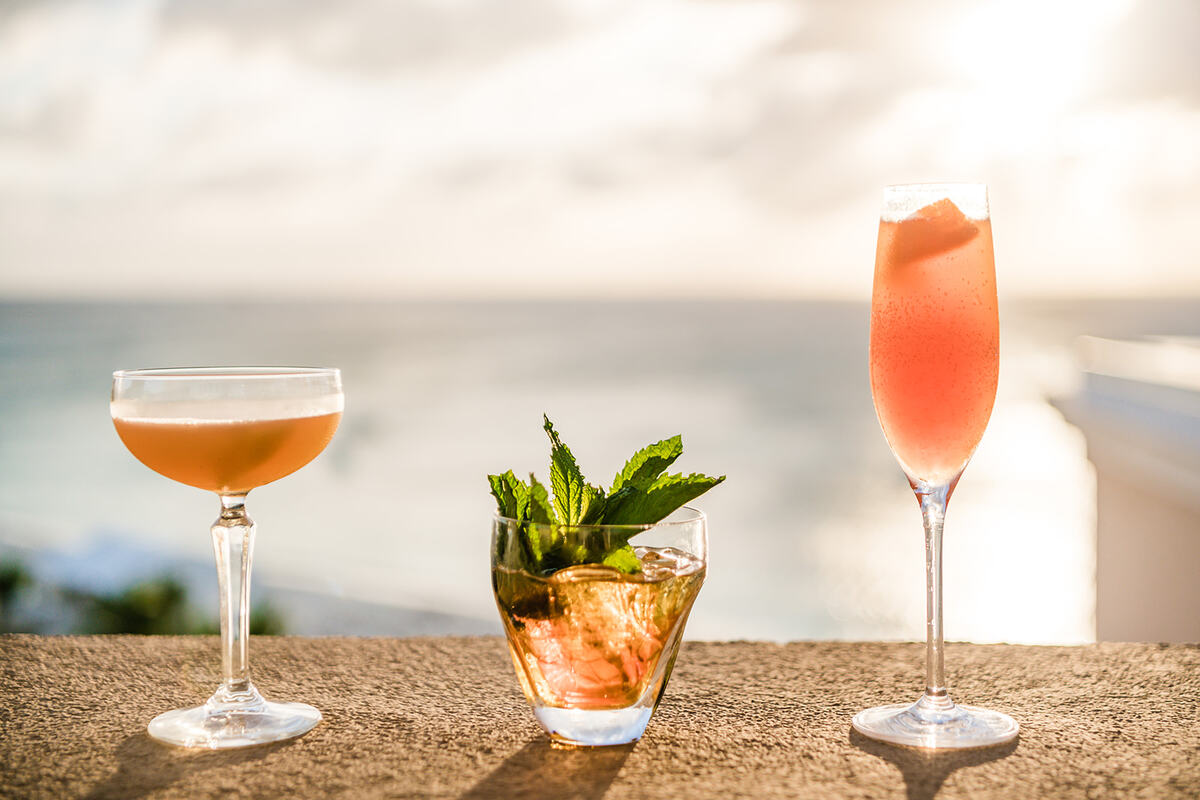Hotels Raise the Bar on Mocktails With Eye on Health-Conscious Travelers

Skift Take
Mocktails are no longer just for pregnant women on babymoons or business travelers looking to avoid a morning meeting hangover. Hotel food and beverage outlets are adapting their drink menus to satisfy increasingly health-conscious guests and offer brands an opportunity to increase profits.
Keisha Parcells-Robb, director of food and beverage for Ritz-Carlton Grand Cayman, said evolving guest preferences were among the main factors for developing Saint June, the property's al fresco dining concept that's set to launch in mid-October. The rum-punch umbrella drinks popular in years past have been replaced by fresh-pressed local juices, healing ingredients like guava and matcha, and anti-inflammatories like coconut water and ginger.
"There is a tremendous focus on artfully incorporating foraged and grown ingredients into a collection of cocktails that also includes non-alcoholic options,” Parcells-Robb said. "Consumers seem to be a lot more health-conscious nowadays and more mindful."
That mindfulness has helped drive the growth of wellness travel and culinary sustainability. Hotels also believe they can reap the benefits of increasing food and beverage options, with the sales of non- and low-alcoholic drinks in 10 major markets — including Japan, South Africa, the United States, and Australia — increasing from $7.8 billion in 2018 to just under $10 billion in 2020.
While hotel brands are eager to present local flavors — such as Wilderton, a zero-proof line based in Hood River, Oregon — they're finding the shift provides them significant financial and operational benefits. Sourcing regionally helps eliminate recent food and beverage supply issues, while purchasing in bulk offers cost savings.
"Non-alcoholic ingredients cost less to source, and these savings extend to both the guest and the property," said Jennifer Barnwell, president of Curator Hotel & Resort Collection.
Even niche products like Wilderton are significantly less than a mid-range tequila, so the materials to craft that mock paloma would cost Stevenson, Washington's Skamania Lodge, a Curator property, on average $10 less per bottle. The Foundry Hotel in Asheville, North Carolina has also found that mocktails it offers at its onsite restaurant Benne on Eagle and hotel bar Workshop Lounge not only saves a similar amount of money but time as well. Each batch is pre-made at the beginning of a shift, which frees up staff and can make bar service faster.
Meanwhile, Australia-based QT Hotels & Resorts, which has partnered with non-alcoholic brand Lyre's, believes standardizing the drink menus across all of its 10 locations has boosted its bottom line. Group Beverage Director Chris Morrison says streamlining the choice of spirits enables the company to purchase products in bulk and stave off potential supply problems.
But Barnwell believes it’s not only substance but style that can help hotel brands attract guests.
"Travelers are now very influenced by social media, which is another area where mocktails can be showcased. (Food and beverage) teams can get creative and use unique colors and ingredients to create a viral moment that guests can’t resist," she said.
That was the case at Ovolo Hotels, a brand with boutique properties in Australia, Hong Kong and Bali. Ovolo's Creative Beverage Director Andrea Gualdi said its Dry July campaign, during which it featured a wide selection of zero-proof cocktails, garnered a lot of attention.
However, hotels are also reimagining their beverage programs to suit guests who are staying longer. Andrew Ladd, the director of marketing at Noble House Hotels & Resorts, believes food and beverage options have had to change as the length of the average stay has increased. While Ladd noted that many travelers drink at the beginning of a trip, he added the initial indulgent mindset of vacation shifts to focusing on healthier options the longer the stay.
Likewise, Lindsey Amador, the director of marketing at San Diego's Paradise Point Resort & Spa, states changing guest preferences has forced her hotel to evolve. She's seen visitors increasingly choose to dine exclusively at the resort instead of venturing out to San Diego restaurants.
"This has forced us to become more creative with our food and beverage offerings, so guests can eat at the same restaurant a few times and not get bored," she said.
Creativity was one impetus behind Hyatt’s growing Zero Proof, Zero Judgment program. The company features dozens of sober bar managers and chefs, including mixologist Anna Welker at Revival Baltimore, a part of the JdV by Hyatt brand. Welker launched a local zero-proof cocktail program following a successful dry January menu in 2020 that has since expanded to 20 Hyatt-owned U.S. hotels.
Revival has seen on average a 37 percent increase in zero-proof cocktails purchased per month since Zero Judgment's launch in August 2021. Hyatt's National Director of Bars Miranda Breedlove said, as of January 2022, more than half of guests at Topside — Revival's onsite restaurant — ordered a zero-proof cocktail over a signature cocktail.
But despite what the numbers may show for zero-proof programs, those efforts don't come without reservations for former drinkers like Liz Goodwin. The Massachusetts-based real estate agent cautions that the mocktail bandwagon should be targeted more toward the health-conscious as opposed to those already on the bandwagon.
"It’s about the fancy glassware and the ritual behind it that mocks the intent," she said. "Would you let a gambling addict play online games just for fun?"




